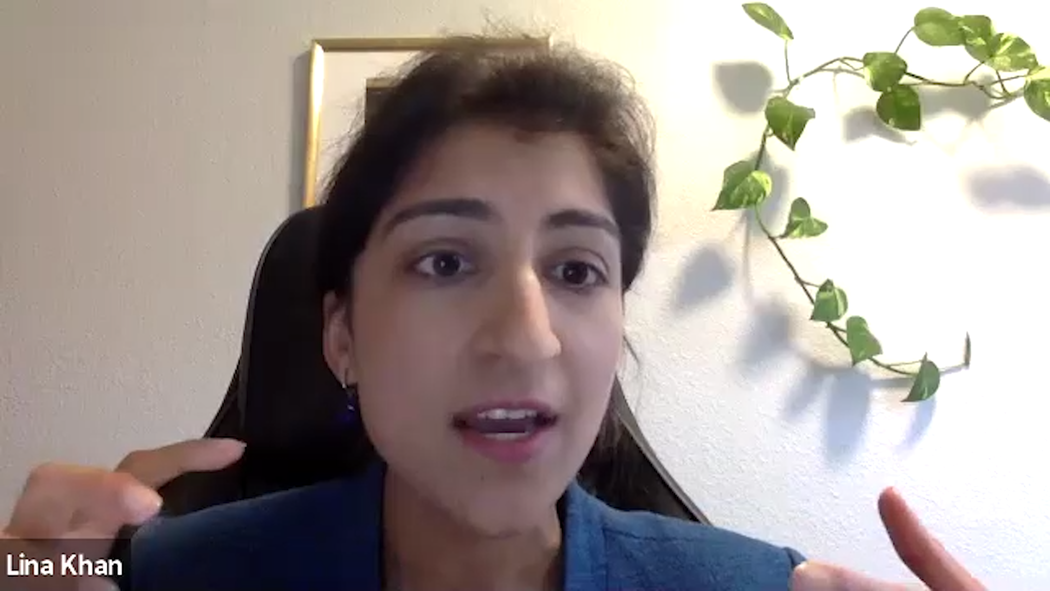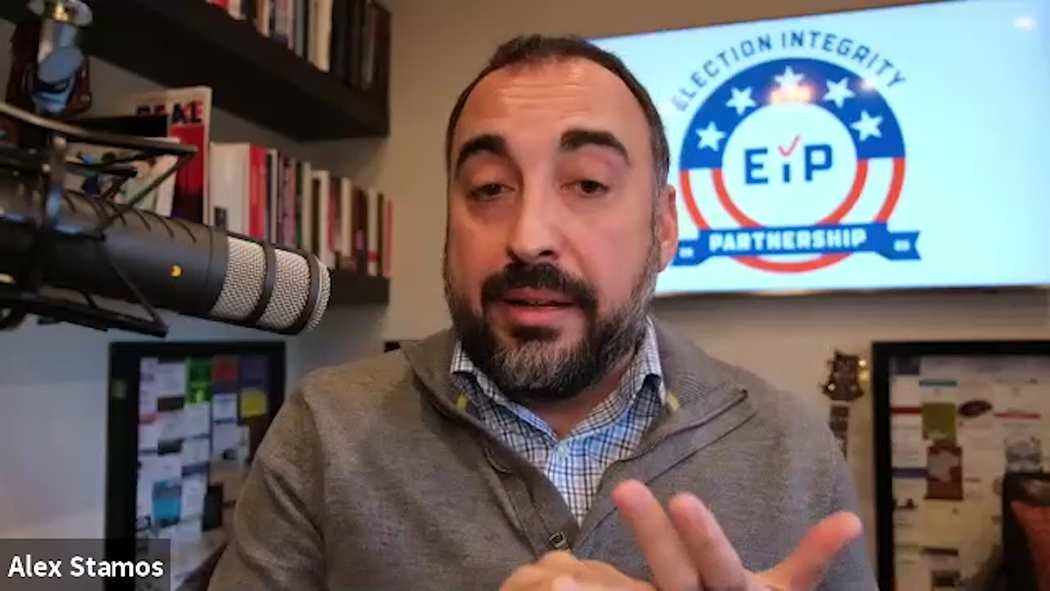
Silicon Valley’s most successful companies have moved fast and amassed millions — and in some cases, billions — of users, while governments have slowly caught on to how these new digital businesses worked. Now, policymakers better understand the power that tech platforms gained by offering free services, which users pay for with data, and how these affect markets and society.
Is it time for a reset? In October, the House Judiciary Committee published a damning report concluding that four tech giants — Amazon, Apple, Facebook and Google — have transformed from “scrappy, underdog start-ups that challenged the status quo” into “the kinds of monopolies we last saw in the era of oil barons and railroad tycoons.”
As part of the DealBook D.C. Policy Project, The New York Times gathered a virtual panel of experts in early December to discuss the future of Big Tech. “Everyone agrees, there is a serious problem that needs to be addressed,” said Representative David Cicilline, Democrat of Rhode Island and the chairman of the House antitrust subcommittee that penned the report about the tech giant’s outsize influence. The “era of self-regulation is over and congressional action is required,” he added. A spirited debate followed.
The participants:
Timothy M. Armstrong, chief executive of the dtx company
David N. Cicilline, congressman from Rhode Island
Makan Delrahim, assistant attorney general for the antitrust division at the Justice Department
Lina Khan, associate professor at the Columbia Law School
Barry C. Lynn, executive director of the Open Markets Institute
Noah Joshua Phillips, commissioner at the Federal Trade Commission
Alex Stamos, director of the Stanford Internet Observatory
Phil Weiser, attorney general of Colorado
Shoshana Zuboff, author and professor emeritus at Harvard Business School
Moderated by Katie Benner, The Times’s Justice Department correspondent
Silicon Valley and Washington don’t speak the same language. That makes it hard for them to understand each other.

As a sometimes heated conversation revealed, there is fundamental tension between Silicon Valley and everyone else, and especially with lawmakers in Washington. During the discussion, these differences were evident in everything from how the panelists were dressed to the focus of reforms they suggested and the way they expressed themselves. As Alex Stamos, now of Stanford and formerly of Facebook, put it, “I’m a little nervous being one of only two people west of the Mississippi without ties, but I’ll filter.”
Similarly, Tim Armstrong, an ex-Googler, joked that he feared he’d been invited to an antitrust barbershop and that only the technologists would leave with a haircut. In fact, the technologists did some of the cutting, and often seemed skeptical that outsiders — academics, lawmakers, regulators — can ever understand the most pressing problems the U.S. faces when it comes to data security and market power. As Mr. Armstrong described it, simply recognizing where value is created, and power amassed, can be hard to see:
Big Tech’s critics pushed back on claims that they aren’t equipped to propose sensible fixes. The House report proposed a range of remedies to deal with relatively new practices now understood to threaten market competition and even democracy itself, said Lina Kahn of Columbia, who serves as counsel to the House antitrust subcommittee. She resisted Mr. Stamos’s contention that politicians have responded to every problem with Big Tech with a call to break up the companies, saying the report was 490 pages because it offered nuanced solutions that show an “evolution” in lawmakers’ understanding of digital markets.
All seem to believe, however, that the tech giants of today probably won’t soon fade away like some of their predecessors. As Mr. Stamos put it, Silicon Valley “is covered with the bleached bones of the dinosaurs that come before,” but the current giants “have so much money and so much data they’re hard to disrupt.”
That means working through difficult issues, including developing a language to describe the new economy that spawned the corporate giants that antitrust law must evolve to address.
If data is currency, who does it belong to? Who sets the terms of exchange?

The Harvard sociologist Shoshana Zuboff coined the term “surveillance capitalism” to describe what she calls “an economic logic in the tradition of capitalism” that includes “taking things that live outside the market dynamic,” like human experiences, and turning them into commodities. Tech companies, most notably Google, quickly recognized the value of online habits and the data they generated, collecting and commodifying internet activity before users or governments understood its importance.
“If you take something and people don’t know that you’re taking it from them, and then you make it your own and you turn that into your economic means for generating revenue and profit,” Ms. Zuboff explained, “any 8-year-old will tell you that what I’ve just described is stealing.”
The companies at the center of this new system have consolidated power without much scrutiny, she argued. So the question now is how to protect users and smaller players in digital markets operating under a new commercial logic.
“We’re now living in this new economy where data has been referred to as the new oil,” said Phil Weiser, the attorney general of Colorado. Yet there is no government institution capable of “enabling and overseeing access to data both that ensures privacy and promotes competition.”
Mr. Armstrong suggested that one solution might be to pay users for data auctioned at a “baseline price,” saying, “you could economically value users fairly easily.” He continued:
Makan Delrahim, who oversees the antitrust division at the Justice Department, believes the emergence of new technologies and services like TikTok have already shown that “the market can address some of the competitive concerns.” However, he is worried about privacy rights and the data users trade to engage on platforms:
Latest Updates
- Walmart is preparing to administer a coronavirus vaccine once it is available.
- Mastercard and Visa stop allowing their cards to be used on Pornhub.
- The U.S. budget deficit hit $207 billion in November.
Promoting both privacy and competition can create contradictions. Is there a way to resolve them?

Protecting users and markets aren’t mutually exclusive interests, but they can contradict, said Noah Joshua Phillips, a commissioner at the Federal Trade Commission. Both are desirable goals and must be considered in concert because pushing one may undermine the other, he explained:
The health care industry offers a prime example of the tension between the two principles, Mr. Weiser offered. It should be easy for people to access their own records online, but in practice it’s difficult, despite laws making it possible. Bottlenecks appear in the name of privacy, preventing both access and competition.
On the flip side, promoting competition can also lead to serious privacy invasions, Mr. Stamos said. “The most pro-competitive move Facebook ever made,” he said, led to abuse by a researcher at Cambridge University and the creation of Cambridge Analytica, a company that used the shared information to target content, undermining the integrity of elections in the United States and elsewhere. Acknowledging the conflict between privacy and competition is critical to crafting rules that promote both, he said:
Mr. Stamos cited Europe’s privacy law as an example of a reform with “massive internal contradictions” around privacy and competition. Ultimately, privacy protections there have only strengthened the giants’ market dominance while adding burdens on small players, thereby limiting competition. This warning was echoed by Mr. Phillips, who said, “Europe has tried to regulate itself into competitiveness. It has not worked, and that is a very important lesson for us to take.”
The counterargument: Barry Lynn of the Open Markets Institute sees privacy and competition on a continuum. By focusing on what companies can do with data and restricting it, the competitive threat they present lessens, he said, so enhancing privacy rights also promotes competition.
Can these differences be reconciled? Should they be?

The debate revealed a critical cultural conflict that both explains where we are today, with respect to regulating Big Tech, and the obstacles ahead. Technologists don’t trust that others understand the tools they’ve created enough to fix the problems, and those charged with thinking about the rules — including those who write them — don’t believe every fundamental principle needs an update, even in the age of surveillance capitalism.
By the end of the discussion, Mr. Stamos dropped the filter, accusing Silicon Valley’s critics of “nonempirical, fuzzy, hand-waving stuff.”
Mr. Armstrong wondered if they had spent enough time aligning proposed solutions with the goal he considers paramount, making sure the United States is in the best position to compete globally
Ms. Khan, who throughout resisted the “weaponization of complexity” and arguments that digital markets are too tricky to tame, responded by saying, “The most simple goal that I can offer for you is allowing businesses that have a new product or service that they want to bring to market to be able to compete on the merits of that product or service.” She added: “I think that’s a core principle that has historically informed how we’ve approached competition policy.”
This, the moderator Katie Benner of The Times said, “almost perfectly highlighted the fundamental difference in approach and point of view between Silicon Valley and Washington.”
Did you miss our previous article...
https://trendinginthenews.com/usa-politics/pentagon-weighs-sharp-drawback-in-support-for-cia






